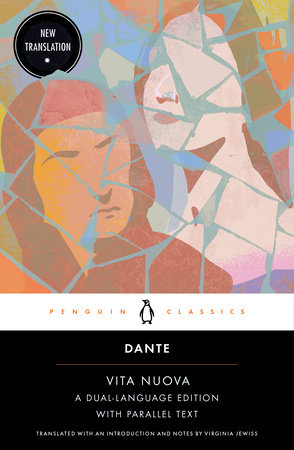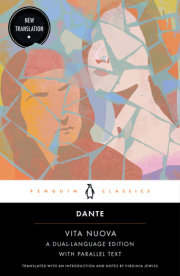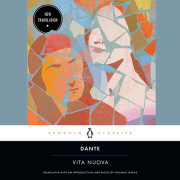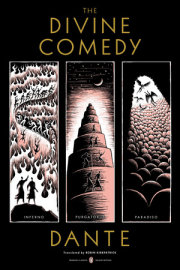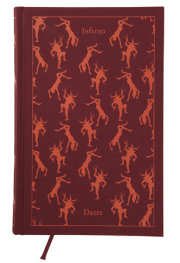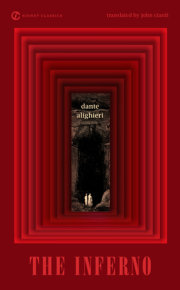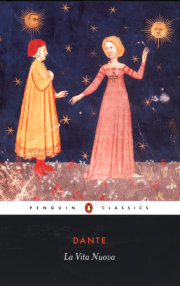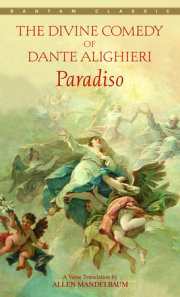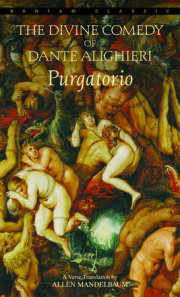“This pitch-perfect translation, accompanied by a splendid introduction and the original Italian, beautifully captures the marvelous strangeness of young Dante’s ‘new life’ as the lover and poet of Beatrice, and will be the go-to English edition for many years to come.” —Guy P. Raffa, author of Dante’s Bones: How a Poet Invented Italy
“This lucid translation, paired here with the original Italian, allows readers to experience Dante’s narrative, poetic, and critical innovations in a fresh, contemporary idiom and produces a dialogue that reveals hidden dimensions of Dante’s rich and puzzling work that will surprise both familiar and new readers.” ―Martin Eisner, author of Dante’s New Life of the Book
“Virginia Jewiss’s edition of the Vita Nuova provides an old book with a new lease on life. Her concise introduction is fresh and inviting, her translation faithful to Dante’s thirteenth-century Italian but with an ear for the sound of contemporary English. Newcomers to the work as well as its seasoned readers have a treat in store.” ―Peter S. Hawkins, author of Dante’s Testaments and Dante: A Brief History
“A sheer joy. Virginia Jewiss has captured the riveting intensity of this strange, enthralling tale with language of rare beauty, deploying the ancient English repertory of alliteration, assonance, and poetic meter to evoke, rather than reproduce, Dante’s rhymed verse. Her introduction and notes help further to unlock the mystery of a poet just reaching the height of his powers and the blazing passions he transformed into a work that still pulses with the spontaneity of his first improvisations.” ―Ingrid D. Rowland, author of From Pompeii, Giordano Bruno, and The Culture of the High Renaissance
“On my library shelf are ten translations of Dante’s Inferno, but only one translation of his spiritual autobiography the Vita Nuova. This imbalance may reflect our enduring human preoccupation with the hellscape we have made of the world. But there is no reason this should be so. Our own age is also in love with hybrid literary texts, with textual instability, and with hypertext. Virginia Jewiss’s new translation of the Vita Nuova reintroduces us to a great original in Western literature, with its multiple narrative perspectives and its enigmatic interplay among poetry, memoir, and glossing. By the grace and intelligence of her work, Jewiss foreshortens the enormous distance separating us from the culture of Dante’s time, so that Dante’s spiritual passion burns undimmed.” ―Karl Kirchwey, author of Stumbling Blocks: Roman Poems
“Dante’s Vita Nuova remains a well-head of lyric art. For its fidelity and its poetry, Virginia Jewiss’s translation proves the best in English.” ―Peter Campion, poet
“This brilliant translation faithfully renders the complexity of Dante’s autobiographical novel and, with rare expertise, wonderfully brings to light the deliberate ambiguities of his poetry.” ―Giuseppe Mazzotta, Yale University
“In this luminous labor of love, Virginia Jewiss gives new life to the feverish, shimmering Vita Nuova, which Dante wrote when he was in his twenties, to quench the flames of a life-changing love. Some seven hundred years later, her lapidary new translation can perhaps give new life to grateful readers, too.” ―Andrew Hui, Yale-NUS College

